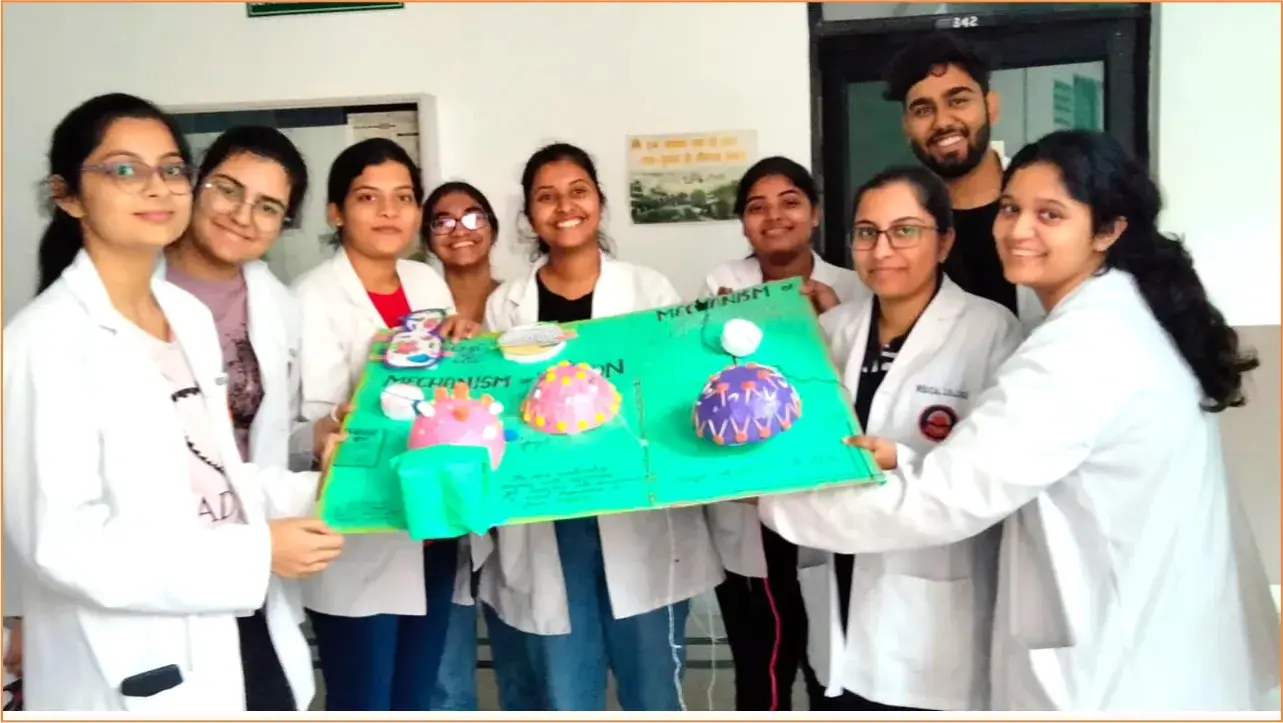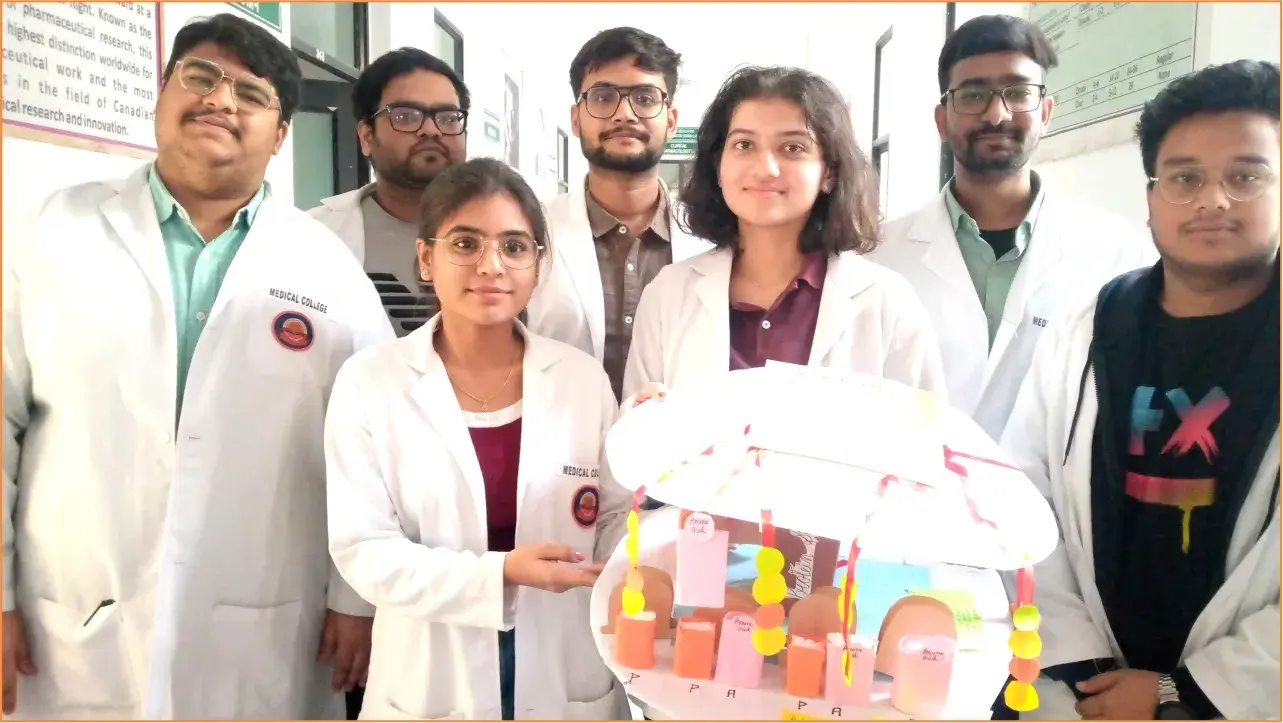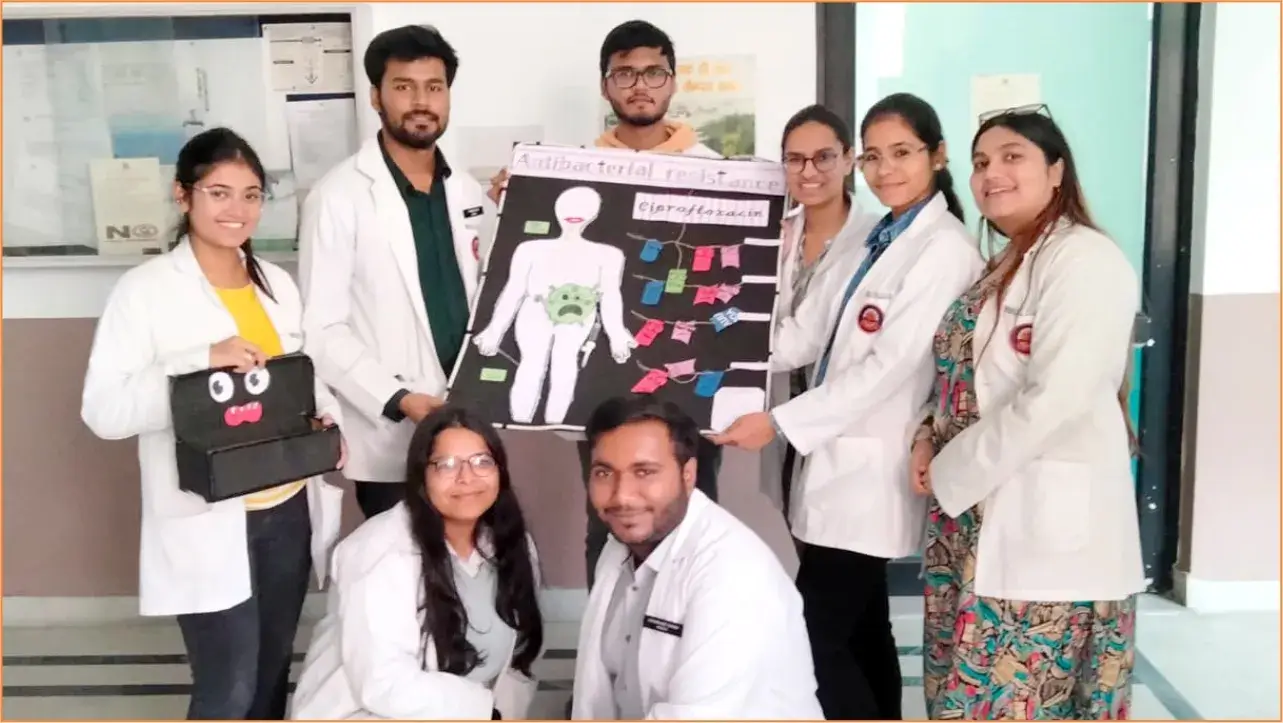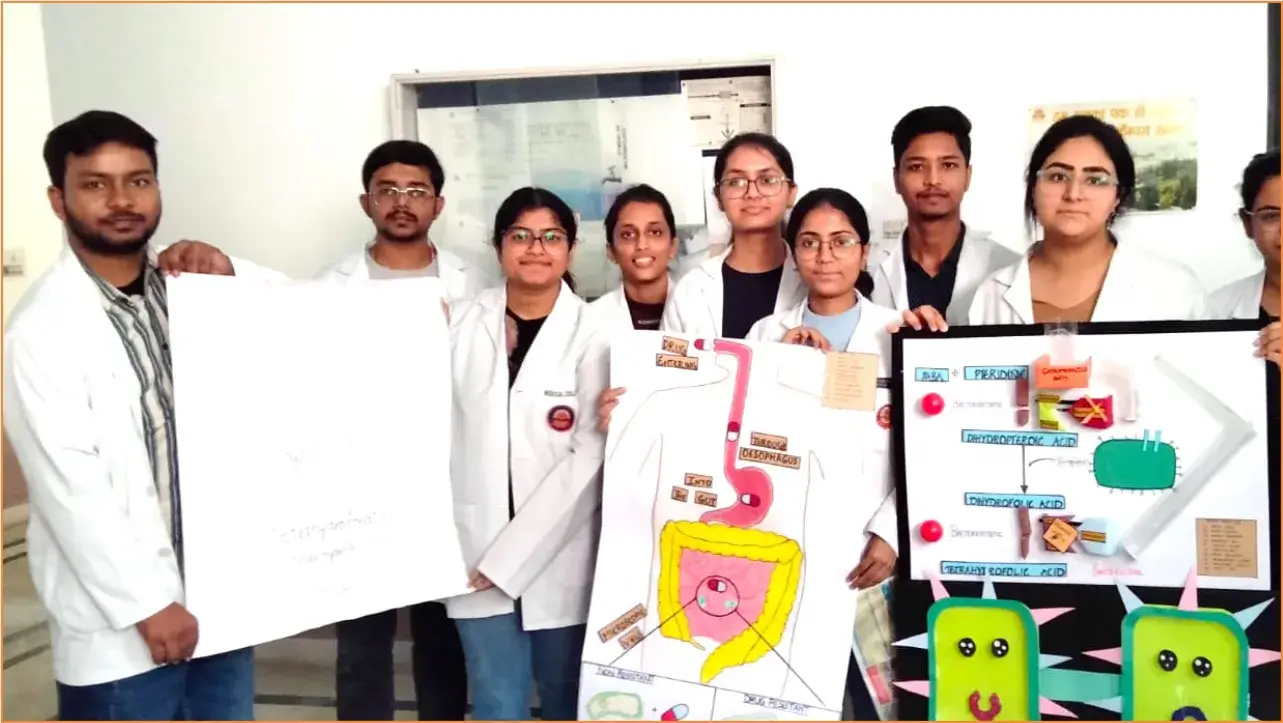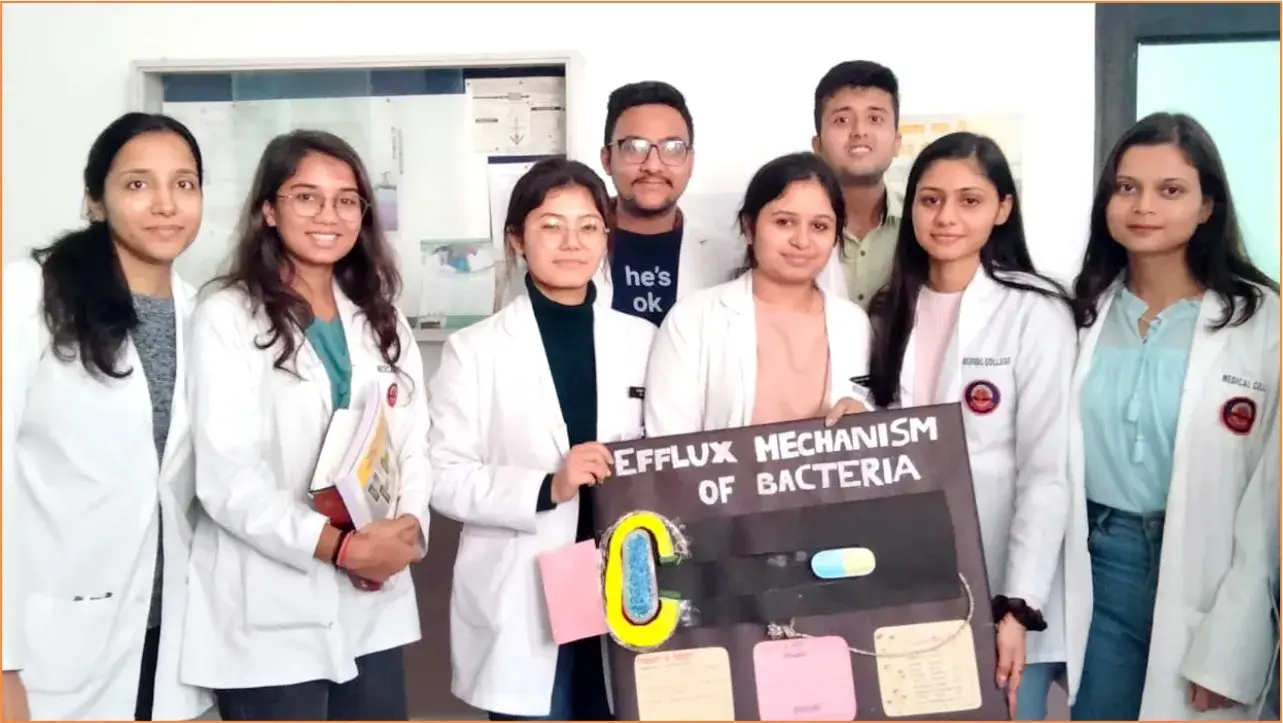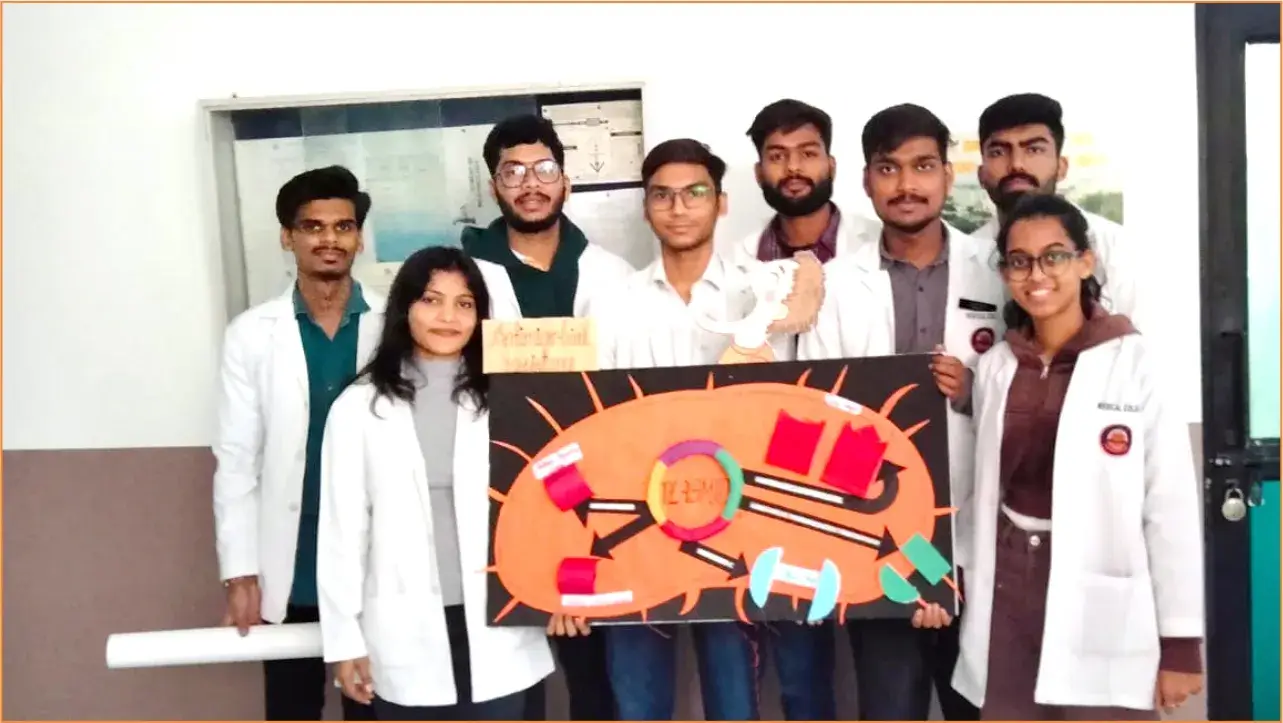WHO Antibiotic Awareness Week Celebration at TMU
Teerthanker Mahaveer University, the best Private University in UP, celebrated WHO Antibiotic Awareness Week from 18th November to 24th November 2023. This remarkable event was organised by the Teerthanker Mahaveer Medical College & Research Centre. The focus was on fostering awareness about antimicrobial resistance, and the centrepiece of the event was a working model-making competition for the MBBS Students of Batch 2021-22.
Event Details
The event took place at the Department of Pharmacology, TMMC&RC, and saw enthusiastic participation from 157 students. These students, grouped into teams of ten, were given a two-week window to prepare working models illustrating the mechanism of action and resistance of antimicrobial agents.
Purpose and Importance of the Event
World Antibiotic Awareness Week, as celebrated by WHO, serves to promote Antimicrobial Stewardship and Rational use of AMA – a need that has become increasingly urgent in the current healthcare landscape. The event at Teerthanker Mahaveer Medical College aligned seamlessly with these global objectives.
Competition Format
The theme of the competition, Preventing Antimicrobial Resistance Together, was disclosed to the participants two weeks prior. This theme holds profound significance in the broader context of healthcare. As the world grapples with the challenges of antibiotic resistance, collaborative efforts become paramount in finding sustainable solutions.
The judging panel comprised esteemed individuals from the academic realm, including Prof (Dr.) Prithpal Singh Matreja and Prof (Dr.) Shilpa Patrick from the Pharmacology Department. The criteria for judging were based on the models' alignment with the theme and their conceptual clarity.
Models Presentation and Judgement
The judges, including Prof (Dr.) Preeti Singh, Dr. Meenu Thomas, Dr. Pooja Agrawal, and Dr. Dhyuti Gupta, were not only impressed but also short of words to express their appreciation for the creativity and ingenuity displayed by the students in their working models.
The presentations of the models were met with awe and appreciation, with the judges commending the students for their commitment to the theme and the depth of understanding demonstrated in their creations. The announcement of the winning group was met with jubilation, marking not only their success but also the collective effort to combat antibiotic resistance. Collaboration and innovation were the core values that the competition aimed to instil.
WHO's Role in Healthcare Awareness
WHO's active involvement in healthcare awareness, particularly in initiatives like Antibiotic Awareness Week, highlights the global impact of such endeavours. By bringing attention to the rational use of antimicrobial agents, WHO contributes significantly to the collective efforts to combat the rise of antibiotic resistance.
Significance of the Event
The event achieved success, leaving a positive impact and receiving acknowledgement. The working model competition at Teerthanker Mahaveer Medical College during the WHO Antibiotic Awareness Week was not merely a showcase of creativity but also witnessed the dedication of future healthcare professionals. It emphasised the importance of collective action in preventing antimicrobial resistance, aligning with the global objectives set by WHO.
FAQs
1. Why is antibiotic awareness important?
Ans- Antibiotic awareness is crucial to address the rising threat of antibiotic resistance globally. It promotes responsible and rational use of antibiotics.
2. How does a working model contribute to awareness?
Ans- Working models provide a tangible representation of complex concepts, making it easier for the audience to understand the mechanisms of antimicrobial agents.
3. What is the role of WHO in antibiotic awareness?
Ans- WHO plays a pivotal role in global healthcare awareness, particularly in initiatives like Antibiotic Awareness Week, advocating for responsible antibiotic use.
4. How can individuals contribute to antibiotic stewardship?
Ans- Individuals can contribute by following prescribed antibiotic programmes, not self-medicating, and spreading awareness about responsible antibiotic use.
5. What are the consequences of antibiotic resistance?
Ans- Antibiotic resistance can lead to treatment failure, increased healthcare costs, and a higher risk of the spread of infectious diseases. For more information and updates on upcoming
events, follow TMU’s social media.


